MARCIN BRAUN CO-AUTHORS PAPER in NATURE
 An original paper co-authored by Marcin Braun MD PhD from the Department of Pathology Medical University of Lodz was published in Nature scientific journal on 4 May.
An original paper co-authored by Marcin Braun MD PhD from the Department of Pathology Medical University of Lodz was published in Nature scientific journal on 4 May.
The paper, with Jan Suski MD PhD as the first author, describes a new mechanism of DNA replication initiation that is a key event in the cell division cycle. The authors used a range of cultured cells and live mice to show an alternative trigger of DNA replication where CDC7, which was so far considered as essential in DNA replication, had a redundant function in the process. It was clearly demonstrated that the alternative replication trigger was determined by the cell cycle kinase B-CDK1 which was previously observed to be active in a completely different phase of the cell cycle. The study outcomes do not only change the tenet of our basic knowledge in biology but they also provide a great potential for translational studies including the design of cancer therapies.
In the period of 2020-2022, doctor Braun completed his postdoctoral internship in Dana-Farber Cancer Institute, Harvard Medical School in Boston, in the team of Professor Piotr Sicinski. The internship was co-funded by Franciszek Walczak scholarship of Polish National Agency for Academic Exchange and the results of the training include two papers published in the most prestigious scientific journals: Cancer Cell (IF 31.74) and Nature (IF 42.78).
Marcin Braun is an author or a co-author of over 70 scientific papers, a winner of numerous awards, and the leader or a team member in research projects. The scope of his research interests include oncology and molecular pathology, with the emphasis on haemato-oncology breast cancers and brain tumours.
Congratulations!
The details of the published paper:
Suski, J.M., Ratnayeke, N., Braun, M. et al. CDC7-independent G1/S transition revealed by targeted protein degradation. Nature (2022). https://doi.org/10.1038/s41586-022-04698-x
Suski, J.M., Braun, M., Strmiska, V., Sicinski, P. Targeting cell-cycle machinery in cancer. Cancer Cell (2021), 10.1016/j.ccell.2021.03.010, doi:10.1016/j.ccell.2021.03.010.







